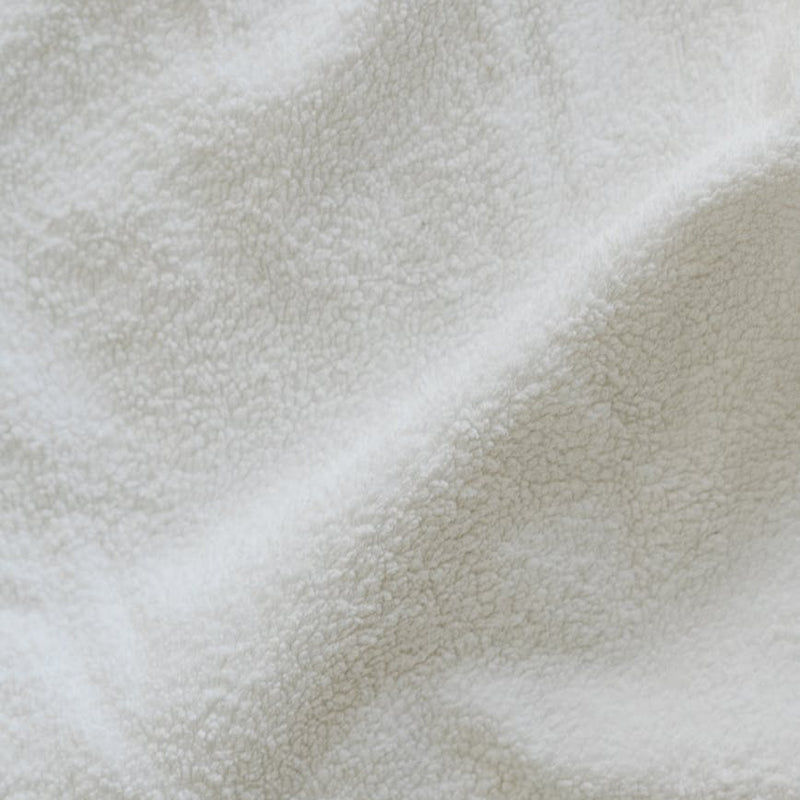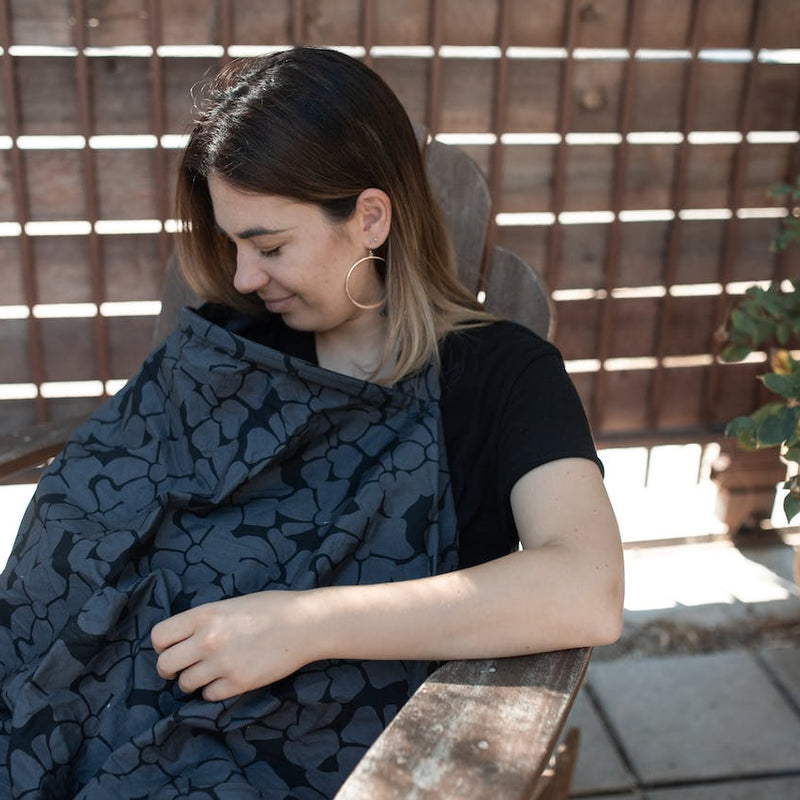Can You Use Retinol While Breastfeeding?

Originally published 05/09/2023. Updated for accuracy and relevancy on 01/18/2024
By OBGYN and fertility expert Dr. Kenosha Gleaton
Whether you just want to get back to the self-care routine you had prior to pregnancy, or if you’re looking for ways to improve your skin post pregnancy, it can be difficult finding safe products to use. Keep reading to learn if you can use retinol while nursing.
What’s Retinol and What Is It Used for?
Retinol is a form of vitamin A that’s commonly used in skincare creams, serums, and lotions. Retinol is marketed for its anti-aging effects, clearing acne, fine lines and wrinkles, reducing stretch marks, dark spots, and more. It works by increasing skin cell production, unclogging pores, exfoliating the skin, and increasing collagen production.1 Retinol can be found in over-the-counter (OTC) products and prescription-strength products. Some common generic names for retinol containing products include tretinoin, adapalene, alitretinoin, bexarotene, and tazarotene. Brand names include Differin®, Tazorac®, Avage®, Renova®, Retin-A®, and others.1
How Do Topical Products Enter the Body?
Topical products are products that are put on the skin. This includes lotions, oils, ointments, etc. Most retinol products are topical, however, there are oral retinoids that can be taken by mouth. Most topical retinol products aim to target the outer layer of the skin, where there are many nerves, hair follicles, and skin cells.2 While this is the target area, topical products are still able to enter the bloodstream by passing through the skin or mucous membranes.3
Is Retinol Pregnancy Safe?
Retinol is a very potent form of vitamin A. While you may think otherwise, it can actually be dangerous to expose yourself or your baby to too much of any one vitamin or mineral. In fact, excessive intake of vitamin A has been shown to cause congenital malformations and spontaneous abortion. 4 While it’s unlikely that you’ll be getting a lot of vitamin A into the bloodstream through topical products, you should be getting the adequate amount of vitamins and minerals in your prenatal supplement. There is actually a natural decrease in serum retinol levels during the second and third trimesters to avoid possible toxic effects.4 It’s best to avoid using retinol during pregnancy unless you’ve been instructed otherwise by your healthcare provider.
Is Retinol Breastfeeding Safe?
As discussed already, excess amounts of vitamin A may lead to fetal abnormalities or spontaneous abortion. Research also shows that excess vitamin A can lead to headaches, blurred vision, nausea, dizziness, muscle aches, and issues with coordination.5 Vitamin A serum levels are naturally lower during pregnancy in order to protect the fetus, but serum retinol is actually transported to the breast after childbirth.4 Breast milk contains high levels of vitamin A in order to support the child’s nutritional demands.4 There isn’t a lot of research to tell us exactly how much vitamin A is passed through topical products into the bloodstream and breast milk, but most experts agree that you should wait until you’ve weaned your child to resume the use of retinol.4 Learn more about how and when to wean from breastfeeding
What Skin Care Products Can I Use While Nursing?
Acne, stretch marks, cracked nipples, and melasma during pregnancy or breastfeeding are common occurrences. Changing hormone levels, a growing body, and beginning to breastfeed are usually to blame. Whether you just want to get back to the self-care routine you had prior to pregnancy, or if you’re looking for ways to improve your skin post pregnancy, it can be difficult finding safe products to use. The first piece of advice is to avoid putting any products directly on the breast or nipple, unless they are breastfeeding safe (like this Nip & Lip Balm). If you've noticed breastfeeding causing fatigue, it's essential to prioritize your well-being and skin health during this period.
Hopefully we will have more data on the safety of various skin products while lactating in the future, but for now, data seems to be lacking. Two systematic reviews did summarize the following points6,7:
- Oral and topical retinoids should be avoided
- Topical antibacterials (clindamycin and erythromycin) are thought to be safe
- Benzoyl peroxide is thought to be safe
- Salicylic acid should be used with caution
- Glycolic acid is thought to be safe
- Hydroquinone should be avoided
- Sunscreens are safe in most cases, although some commonly found chemicals should be avoided when possible8-11
- MEA/DEA/TEA
- Octyl methoxycinnamate or ‘octinoxate’
- Benzophenone
- Para-Aminobenzoic Acid (PABA)
- Self-tanning agents are thought to be safe12
Other pregnancy and breastfeeding safe products include:
- Argan oil
- Coconut oil
- Shea butter
- Vitamin E
- Grape seed oil
- Beeswax
Want to learn more? Find out if you can use Botox while pregnant or breastfeeding
What Can I Use For Dry Skin and Stretch Marks?
Stretch marks are a beautiful reminder of our ever growing and changing bodies, but for those that do want to reduce visible marks, there are some breastfeeding-safe products available. Belly oil, creams, lotions, and more that include argan oil, emollients, coconut oil, jojoba oil, and more can all help hydrate skin and may support the treatment and prevention of stretch marks.13,14
What Can I Use for Acne and Swelling?
Swelling and acne are both uncomfortable and common symptoms experienced during or after pregnancy. As mentioned, you can use gentle cleansers that contain topical antibacterials, benzoyl peroxide, and glycolic acid.6,7 Cleansers can be used once or twice a day to wash away any dirt, promote collagen production, and exfoliate the skin. Moisturizers may also be helpful for hydrating and calming the skin after cleansing. For swelling, you can look for products with anti-inflammatory skincare ingredients, such as a cooling cream or lotion with tea tree oil, peppermint oil, vitamin E, etc.15
It’s always best to speak to your healthcare provider before using any product, especially while pregnant or breastfeeding.
Key Takeaways
- Retinol is a concentrated form of vitamin A commonly found in topical skincare products.
- Retinol is known for its role in anti aging, clearing acne, and exfoliation.
- While topical products are usually targeting the outer layers of the skin, many products do pass through the skin and into the bloodstream.
- Most research suggests that retinol should not be used during pregnancy or while breastfeeding. There is some evidence that high amounts of vitamin A can cause birth defects, miscarriage, and other unpleasant health effects.
- Safe products to use during pregnancy include natural plant oils such as coconut oil, argan oil, tea tree oil, etc. as well as glycolic acid, topical antibacterials, benzoyl peroxide, and others.
- You should always speak to your healthcare provider before using any product, especially during pregnancy or lactation.
Dr. Kenosha Gleaton is board-certified in gynecology and obstetrics and is the Medical Advisor of Natalist. She received her MD from MUSC and completed her residency at Carolinas Medical Center in Charlotte, NC.
Dr. Gleaton is passionate about women, youth, and mentoring. She is a Scrubs Camp instructor, a program to increase student entry in healthcare, and serves as a Compassion International adoptive parent. She is also a member of the American College of Obstetrics & Gynecology, the American Association of Gynecologic Laparoscopists, and the American Association of Professional Women.
References:
- Retinol. Cleveland Clinic. June 17 2022. Accessed April 2023. URL.
- Benson HAE, Grice JE, Mohammed Y, Namjoshi S, Roberts MS. Topical and Transdermal Drug Delivery: From Simple Potions to Smart Technologies. Curr Drug Deliv. 2019;16(5):444-460. doi:10.2174/1567201816666190201143457
- InformedHealth.org [Internet]. Cologne, Germany: Institute for Quality and Efficiency in Health Care (IQWiG); 2006-. Using medication: Topical medications. 2011 Apr 13 [Updated 2017 Aug 10]. Available from: https://www.ncbi.nlm.nih.gov/books/NBK361003/
- Bastos Maia S, Rolland Souza AS, Costa Caminha MF, et al. Vitamin A and Pregnancy: A Narrative Review. Nutrients. 2019;11(3):681. Published 2019 Mar 22. doi:10.3390/nu11030681
- Vitamin A and Carotenoids. National Institues of Health. August 12 2022. URL.
- Bozzo P, Chua-Gocheco A, Einarson A. Safety of skin care products during pregnancy. Can Fam Physician. 2011;57(6):665-667.
- Trivedi MK, Kroumpouzos G, Murase JE. A review of the safety of cosmetic procedures during pregnancy and lactation. Int J Womens Dermatol. 2017;3(1):6-10. Published 2017 Feb 27. doi:10.1016/j.ijwd.2017.01.005
- Ethanolamine Compounds (MEA, DEA, TEA And Others). Campaign for Safe Cosmetics. Accessed April 2023. URL.
- Octyl methoxycinnamate. Campaign for Safe Cosmetics. Accessed April 2023. URL.
- Benzophenone. Campaign for Safe Cosmetics. Accessed April 2023. URL.
- Para-Aminobenzoic Acid (PABA). Campaign for Safe Cosmetics. Accessed April 2023. URL.
- Mother To Baby | Fact Sheets [Internet]. Brentwood (TN): Organization of Teratology Information Specialists (OTIS); 1994-. Self-tanners, Tanning Pills, Tanning Booths. 2021 Oct 1. Available from: https://www.ncbi.nlm.nih.gov/books/NBK582952/
- Lin TK, Zhong L, Santiago JL. Anti-Inflammatory and Skin Barrier Repair Effects of Topical Application of Some Plant Oils. Int J Mol Sci. 2017;19(1):70. Published 2017 Dec 27. doi:10.3390/ijms19010070
- Bogdan C, Moldovan ML, Man IM, Crișan M. Preliminary study on the development of an antistretch marks water-in-oil cream: ultrasound assessment, texture analysis, and sensory analysis. Clin Cosmet Investig Dermatol. 2016;9:249-255. Published 2016 Sep 6. doi:10.2147/CCID.S107298
- Matera R, Lucchi E, Valgimigli L. Plant Essential Oils as Healthy Functional Ingredients of Nutraceuticals and Diet Supplements: A Review. Molecules. 2023;28(2):901. Published 2023 Jan 16. doi:10.3390/molecules28020901
Sign up for 15% off your first order!
Insider access, exclusive deals, and OBGYN insights!
Reach Out, We're Here
Have questions about your order or products? For the speediest answer, check out our FAQ section. Need something else? Come find us below.
Customer Support
support@natalist.com
Press Inquiries
media@everlyhealth.com
Business & Partnerships
team@natalist.com
Affiliates + Influencers
team@natalist.com
Job Openings
Careers Page






















